Over the course of the past two years, there have been countless examples of ICSOM orchestras facing tremendous adversity. While the effects of the pandemic still remain for a large number of our members, the recovery has begun in earnest for quite a few orchestras. In this article, five delegates from across the country share some positive news about their organizations.
Colorado Symphony
Jason Shafer
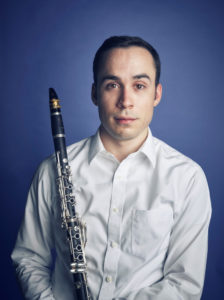
Colorado Symphony delegate Jason Shafer
Photo Credit: Willie Petersen
The Musicians of the Colorado Symphony are thrilled to announce two exciting developments from the end of 2021. First, we are entering a period of newfound, exceptional financial stability, thanks to major growth in our endowment. And second, we have ratified our first new CBA since 2013.
In 2015, our endowment stood at about $9 million. However, by the end of 2021, it grew to approximately $88 million, an incredible increase largely due to the relentless efforts of Jerry and Dr. Mary Kern. Both Jerry and Mary spent years as Co-Chairs of our Board of Trustees, and in addition to that role, Jerry served as CEO of the Colorado Symphony Association. Jerry took over as CEO directly after the Colorado Symphony’s financial crisis about ten years ago, performing those duties for many years without a salary.
In addition, in November 2021, a new CBA was ratified between Local 20-623 and management. The Musicians of the Colorado Symphony have been operating under an expired CBA since 2013, and this new agreement has much to celebrate. Although we received 2% raises a few times during the last few years, this new CBA secures an 8% raise in base pay, in addition to raising our substitute musician pay. Since the duration of the new CBA is only for the 2021-2022 season, negotiations will start soon for a new multi-year agreement. We express gratitude to our Negotiating Committee—John Kinzie (chair), Susan Cahill, Steve Hearn, Nick Recuber, and Michael Thornton—as well as Local President Mike Allen for all their hard work throughout the negotiating process.
Cleveland Orchestra
Katherine Bormann
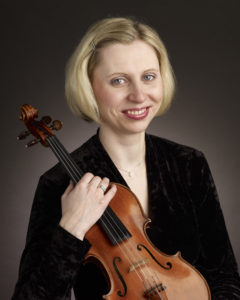
Cleveland Orchestra delegate Katherine Bormann
Photo Credit: Roger Mastroianni
While the first of January marks the beginning of a calendar year, those of us in the arts tend to feel that our new year takes place in the fall, with the launch of a fresh season of concerts. This September in Cleveland had a tangible feeling of festivity: it was the return of our beloved audiences in greater numbers to Severance, the return of guest conductors and soloists experiencing fewer travel issues, and the return to 100 percent salaries.
It is humbling to reflect on the bumpy pandemic journey of so many ensembles. While no institution made it through unscathed, we were truly fortunate in Cleveland to have fiercely devoted audiences and trustees who gave generously to our Orchestra Preservation Fund. We had staff, management, and an Orchestra Committee who worked long hours to navigate safety protocols and secure funding from available sources.
Our musicians adjusted to the distanced programs recorded for our new digital platform, Adella, and this portal has bloomed into an enormous upgrade of tools for the Cleveland Orchestra to connect with patrons. The second season of our captured In Focus concerts is moving ahead with new robotic cameras, production equipment, and artistic staff.
Lastly, we were all stunned this September at the announcement of a $50 million dollar grant to the Orchestra from the Jack, Joseph and Morton Mandel Foundation of Cleveland. The largest gift in our history, the monies will bolster the endowment, support digital infrastructure and artistic programming, and increase the Orchestra’s impact in our local and global communities.
That a local foundation would purposefully invest in classical music (and in strengthening a fellow Cleveland institution) has truly felt like a beacon of light and hope.
Chicago Symphony Orchestra
Miles Maner
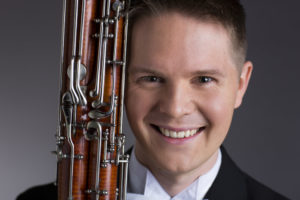
9/19/13 11:01:43 AM Chicago Symphony Orchestra portrait session
Miles Maner, Contrabassoon
å©åÊTodd Rosenberg Photography 2013
As of January 3rd, 2021, compensation for the musicians of the Chicago Symphony Orchestra has been reinstated to 100%, thanks to three primary elements, the receipt of a Shuttered Venue Operators Grant of $10 million, the meeting of the orchestra’s financial and donation projection goals, and to quote Chicago Symphony Orchestra Association (CSOA) President Jeff Alexander, a new “spirit of collaboration” between the orchestra musicians and management.
Following the seven week strike of 2019 and elections for a new Orchestra Committee, the relationship between musicians and management shifted immediately, placing a higher value on trust and mutual respect rather than irrevocable guarantees. This shift was evident in the flexible language of the three COVID-19 side letters ratified by the orchestra. While minimum compensation and benefit guarantees were defined within each of the side letters, loosely defined triggers for further reduction or increase in pay were also included. Without specific ticket sales or fundraising goals specified, the trigger language was purposely limber to allow for ongoing conversation during a fluid season. This flexibility paid off as each of the CSOA’s intentions to increase pay over the last seven months was met on time or early, greatly rebuilding the musicians’ trust in their management.
The musicians of the Chicago Symphony Orchestra are deeply grateful for the many patron and trustee donations to the Orchestra during a year with very little live performance, for the vast efforts of the CSOA including crucial work by the development department and the creation of a new streaming platform, and to the Orchestra Committee and its Chair, Jim Smelser, for forging a new productive relationship with the CSOA and its President, Jeff Alexander.
Kennedy Center Opera House Orchestra
Douglas Rosenthal
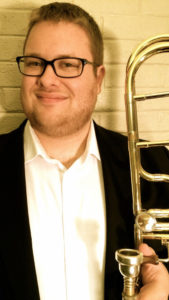
Kennedy Center Opera House Orchestra delegate Douglas Rosenthal
Photo Credit: Ashley Booher
In planning the 2021-22 season, the Kennedy Center decided to devote much of its calendar to commercial, for-profit performances, diminishing the presence of opera and ballet. Because of this, when we began negotiating in July 2021, the Kennedy Center and Washington National Opera managements each sought to reduce our amount of guaranteed work. This would have amounted to about a 23% cut in pay with no “snap back” provision to our pre-pandemic salary.
However, they also expressed an eagerness to utilize the orchestra for educational and non-orchestral performance projects, something for which our musicians have been advocating for a long time. Both sides had very meaningful discussions about this; unfortunately, once economics were reintroduced to the conversation, our managements abruptly abandoned the idea, continuing to leave an unacceptable cut on the table with no restoration of wages.
As we approached a September 12, 2021 deadline, under the guidance of Randy Whatley, we laid the groundwork for a public fight. We kept our eye on a September 14 concert, the Opening Concert for the Kennedy Center’s 50th Anniversary, with VIP attendees that included First Lady Dr. Jill Biden. It was an event that would celebrate the entire institution, although it omitted any participation from our orchestra. Nevertheless, our managements understood that if we did not come to an agreement soon, this concert could be in jeopardy. And so, after long days of negotiations, we ratified three-year contracts with both the Kennedy Center and the Washington National Opera on the evening of September 13.
While the first two of the upcoming seasons will include a reduction in salary and work for this orchestra, the third year will bring restoration. And we hope that by then, the Kennedy Center will have found a way to move past the pandemic in a manner that celebrates every art form without pushing opera and ballet programming aside.
Alabama Symphony Orchestra
Brad Whitfield
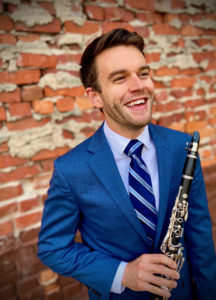
Alabama Symphony Orchestra delegate Brad Whitfield
Photo Credit: Matthew Moore
After far too much time off during the pandemic, the Alabama Symphony Orchestra Musicians emerged with a renewed desire to directly and more tangibly engage with our community.
In September 2021, we created a new series of neighborhood concerts free to the public entitled “Our Hearts Beat for Birmingham” where we performed two different concert programs in three houses of worship across the city. Each concert featured a different local non-profit in an effort to bring awareness and support to some wonderful organizations during a tough time for all. It was a beautiful and tangible demonstration that a symphony orchestra can unite communities across all demographics in a collective shared experience.
In November, we participated in the Breast Cancer Research Foundation of Alabama’s “Pink Up the Pace” 5k. This is a cause close to our hearts, as our ASO family has been impacted by this awful disease far too many times. Our trumpet section provided a “call to post” to kick off the race, and we even had a musician place second overall!
In December, we partnered with the Mayor’s Office Division of Youth Services to provide a “musical trailer” for their second annual Youth First Holiday Toy Giveaway that assists Birmingham youth who live in moderately-low income households, shelters, and residential living facilities. We look forward to participating in this event live next year!
Most recently in January, we performed at UAB Hospital in a show of deep appreciation for all of our healthcare workers. Throughout the pandemic we provided virtual performances for COVID-19 patients in the ICU, so it felt extra special to perform live in the hospital.
We have several exciting projects currently in the works and cannot wait to share them with our ICSOM family!





